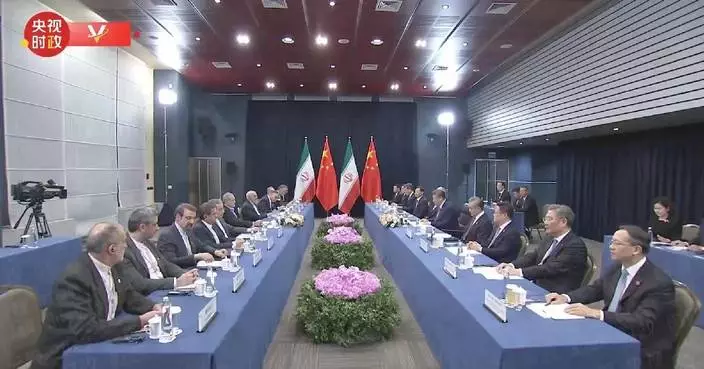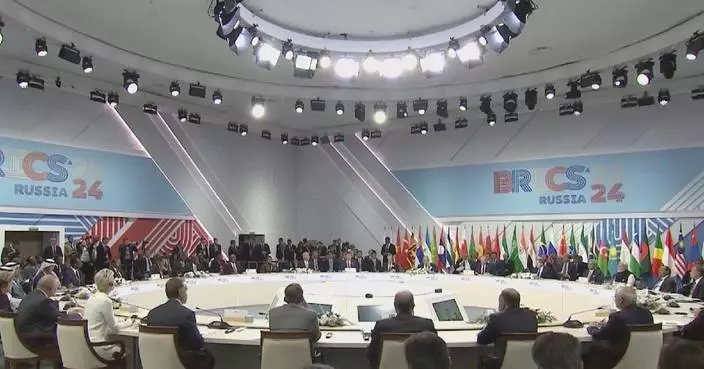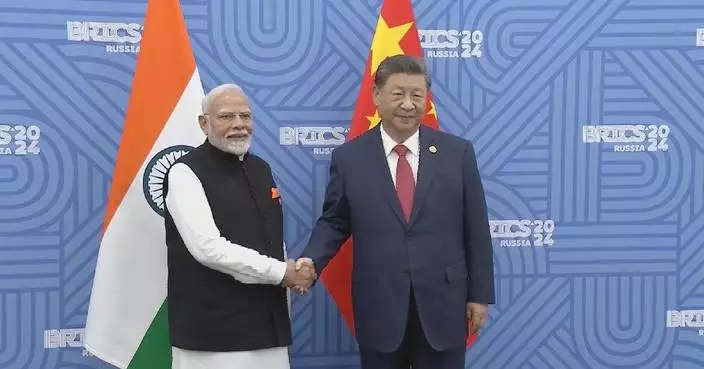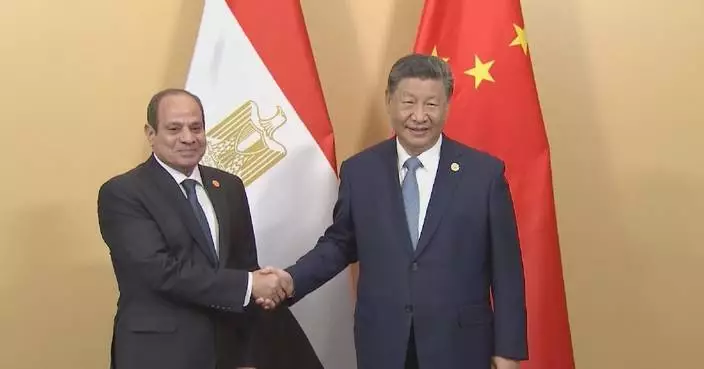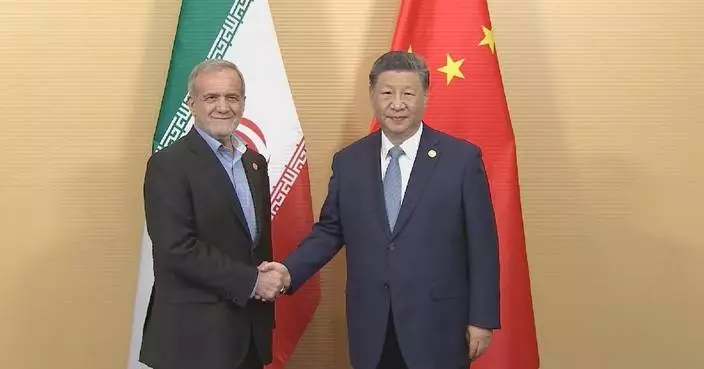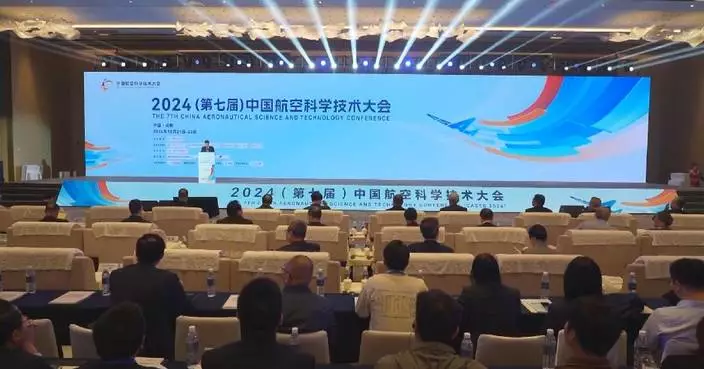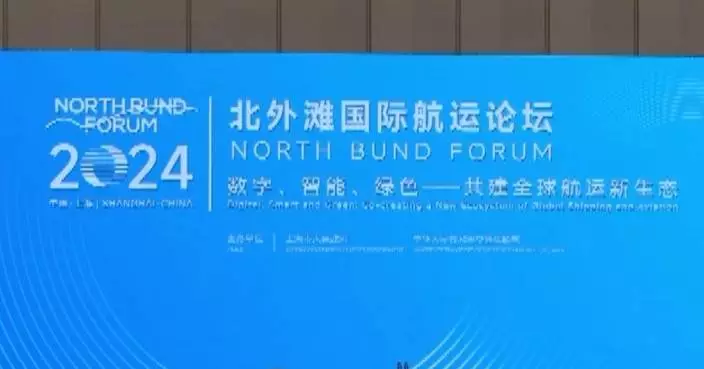SWIFT's annual financial services conference known as Sibos 2024 is underway in Beijing. Over 1,000 participants have gathered to hear industry experts discuss the theme of "Connecting the future of finance." One of the event's exhibitors, Mastercard, has hailed China's progress in opening up its finance industry, and pledged to further boost its presence in the world's second largest economy.
Earlier this year, Mastercard won approval from the country's central bank, the People's Bank of China, to clear payments domestically and offer card services in yuan-denominated transactions.
Dennis Chang, division president of Mastercard Greater China, on Tuesday shared with China Global Television Network (CGTN) about Mastercard's strategy to boost its presence in the Chinese market, and how it has been able to bring more convenience to Chinese consumers.
"What it enabled us to do, is to operate at the financial payment service infrastructure layer, and provide services to our financial institution partners, but also to industry partners in China. And also extend that capability of service internationally to all our global partners. So for the first time, a Chinese consumer can not only use their Mastercard overseas like they have always been able to do in the last 30 plus years, but also now in China, in the neighborhood, in the grocery store next door. This is a fantastic development. It allows the Chinese consumers to fully experience the global acceptance capability of Mastercard and be able to consume more with the financial payment service products," he said.
Chang believes Mastercard, with its extensive acceptance coverage, can help China promote a more inclusive financial services environment, fostering greater consumption both domestically and among international travelers visiting the country.
"In terms of how you drive consumption, I think the key is to create a more inclusive financial services environment where the consumers can have the choices, have the options to consume as they like. And also with the extensive acceptance coverage in China, we'll be able to introduce and promote to more overseas travelers to China to use their Mastercard to pay. So all together, I think we are creating a much better consumption environment, along with that a lot of different choices of payment means for the consumers, so that we can altogether drive consumption like never before," he said.
The four-day Sibos 2024 opened on Monday in Beijing, making history as this is the first time the event takes place in the Chinese mainland. The event is expected to promote communication between China and international financial institutions and drive the financial digital transformation.
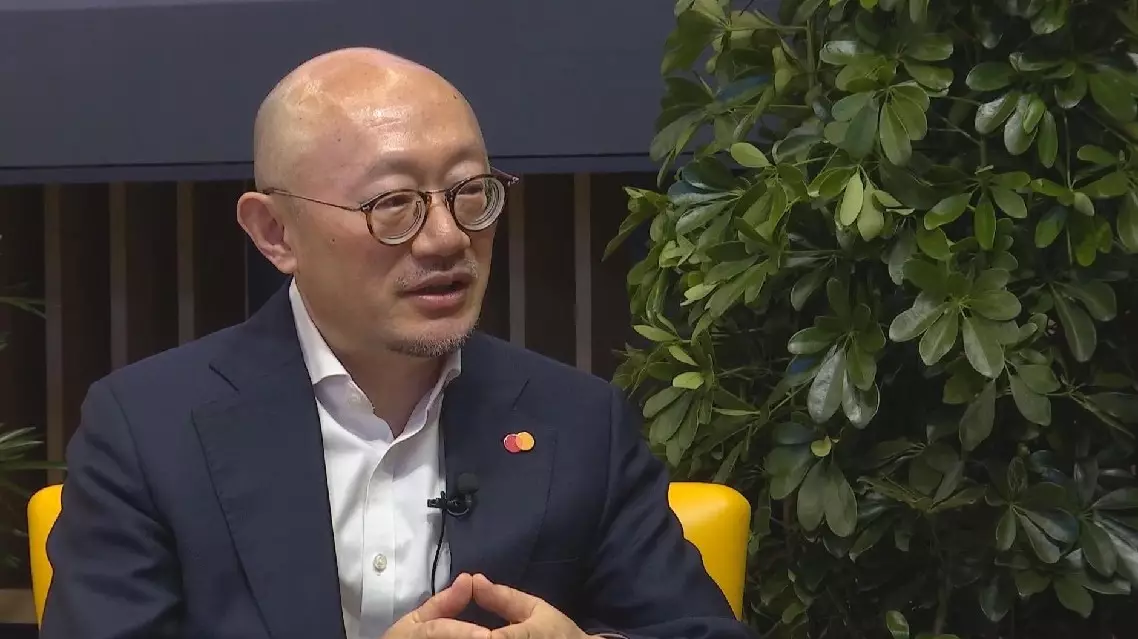
Mastercard aims to further boost presence in Chinese market: senior executive
Israeli strikes on Lebanon have left many people in urgent need of medical care, adding pressure to an already struggling healthcare system of the country.
Since Sept. 23, the Israeli army has been conducting intensive airstrikes on Lebanon in a dangerous escalation with Hezbollah.
While Israel claims it is targeting Hezbollah, the offensive has destroyed hundreds of homes, devastated border villages, and resulted in the deaths of over 2,000 people.
According to a report released Tuesday by the Disaster Risk Management Unit at the Lebanese Council of Ministers, the death toll from Israeli airstrikes on Lebanon since the onset of the Israel-Hezbollah conflict has reached 2,530, with injuries totaling up to 11,803.
Dr. Mazen Alameh, the manager of a small hospital in southern Beirut, is among those dealing with the aftermath.
"We are one of the hospitals that have received many injured patients, especially given our location. An explosion nearby damaged the hospital, forcing us to move patients to other facilities with the help of the Lebanese Red Cross. Since then, we have been operating only for emergency cases. Most of the remaining medical teams and staff sleep at the hospital; we prefer not to leave due to the difficulty of moving around, so they work 24 hours a day," said Alameh.
Suleiman Haroun, president of the Syndicate of Hospital Owners, noted that medical facilities across the country are under pressure, not just in the regions directly affected by Israeli attacks.
"The problem is that hospitals in 'safe areas' are also overwhelmed. For example, most dialysis patients have relocated to these 'safe areas,' so the dialysis centers in these hospitals are inundated with patients. Even before the war, these centers were already operating at full capacity," said Haroun.
Other areas are also suffering under Israel's military offensive. The conflict has put immense pressure on hospitals and the healthcare system in general, particularly with the influx of displaced people in Lebanon.
UNICEF warns of a potential outbreak of infectious diseases due to the displacement of over 1.2 million people - nearly 25 percent of the population - into the streets or inadequately equipped shelters.
"We're concerned at the moment about the spread of waterborne diseases like cholera, diarrhea, hepatitis because when water systems and health services are interrupted or destroyed in some way, that can impact children's access to safe water and also increase the spread of waterborne diseases. If it escalated any further, that would definitely be catastrophic for children, and we're trying to prevent that," said Tess Ingram, spokesperson of UNICEF Middle East.
Despite international condemnation, Israel has been accused of targeting the country's healthcare infrastructure, making it increasingly difficult to provide services.
Officials warn that there is an urgent need to end the conflict, as Lebanon's healthcare system can only survive for a few more weeks before it completely collapses.
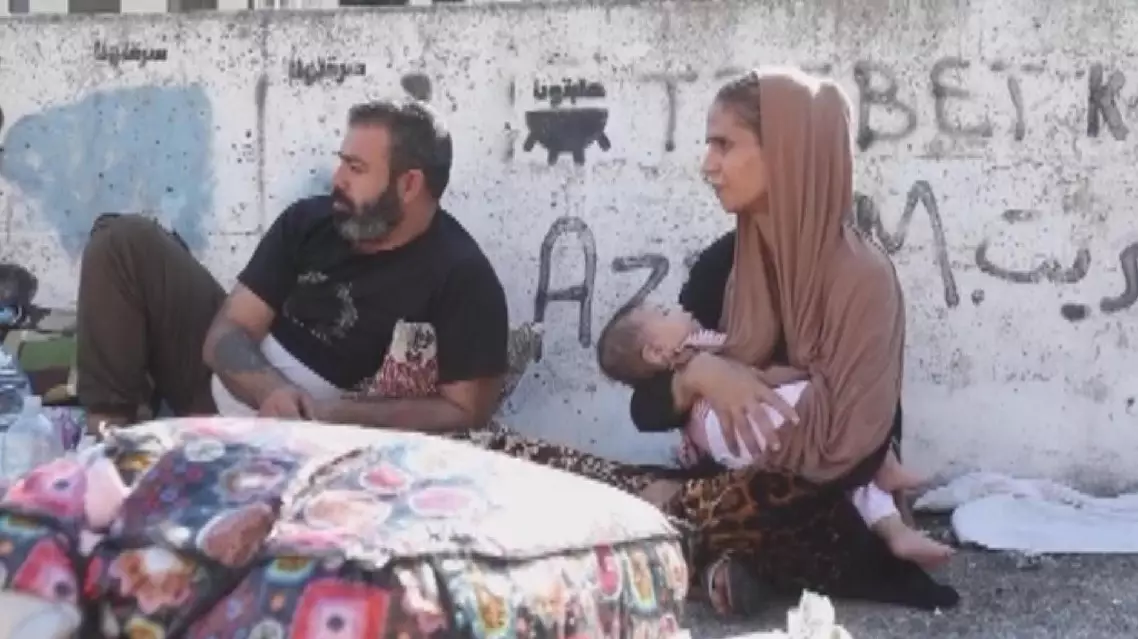
Israeli airstrikes overwhelm Lebanon's healthcare system




